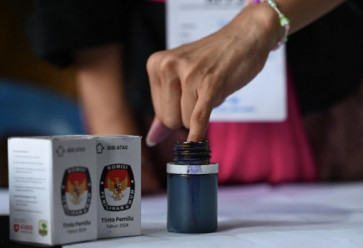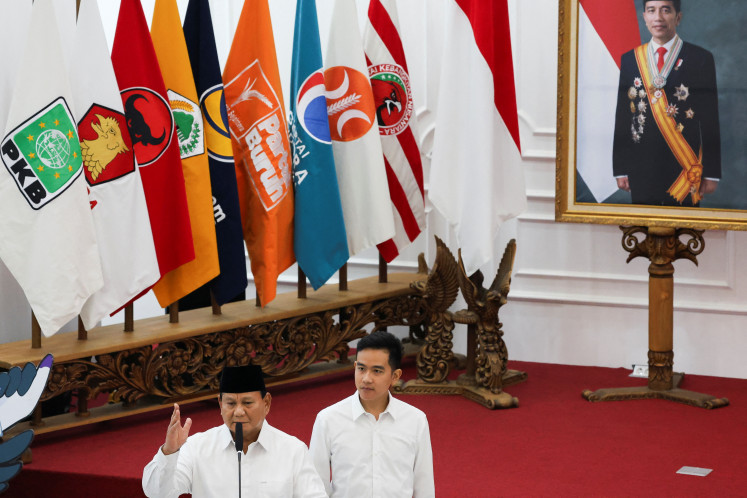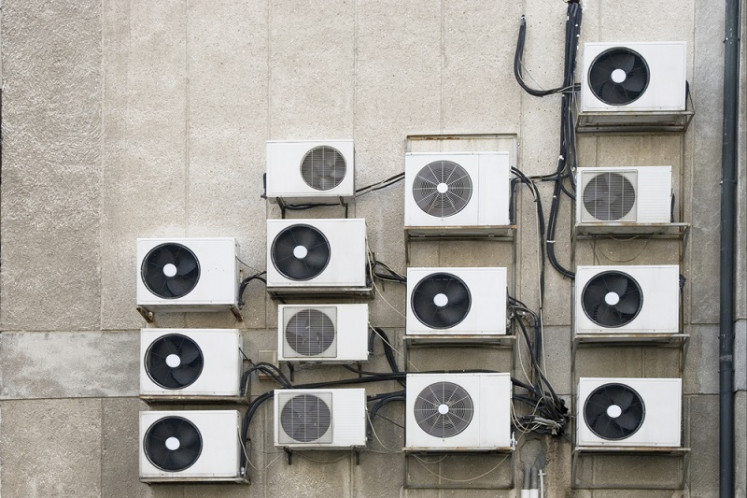Investment down as RI fails to capitalize on trade war
Indonesia is failing to capitalize on the supply chain readjustment caused by the heated United States-China trade war, with investment down during this year’s second quarter, resulting in falling economic growth
Change Size

I
span>Indonesia is failing to capitalize on the supply chain readjustment caused by the heated United States-China trade war, with investment down during this year’s second quarter, resulting in falling economic growth.
The country’s gross domestic product (GDP) growth plunged to 5.05 percent year-on-year (yoy), its lowest level since 2017’s second quarter when the economy expanded by 5.01 percent, Statistics Indonesia (BPS) data show.
The figure is only a slight decline from the first three months of this year when GDP growth was recorded at 5.07 percent yoy but is a sharp fall compared to the 5.27 percent growth recorded in the same period last year.
The Jakarta Composite Index (JCI), the main gauge of the Indonesia Stock Exchange (IDX), fell by 2.59 percent to 6,175.7 on Monday following the release of the data. The rupiah weakened to Rp 14,241 against the greenback compared to Rp 14,203 recorded last Friday, according to Jakarta Interbank Spot Dollar Rate (JISDOR) data.
BPS revealed that household spending, which accounts more than half of GDP, increased by 5.17 percent in the second quarter thanks to the positive momentum generated by the Idul Fitri holiday and the disbursement of annual bonuses for civil servants. However, investment growth nosedived to just 5.01 percent yoy from 5.85 percent in the same period in 2018.
The sluggish investment growth is a sign that Indonesia has been unable to capitalize on the supply chain reorganization caused by the ongoing trade war between the US and China, Bank Central Asia (BCA) chief economist David Sumual told The Jakarta Post.
“The primary key [to GDP growth] going forward amid the trade war and global uncertainty is how to attract more investments,” said David. “The government should speed up structural reforms in terms of ease of doing business, particularly to attract FDI [foreign direct investment].”
He predicted that investment growth could slow further as the prolonged trade war would cause the rupiah’s value to be unstable against the US dollar, while investors would remain cautious about making significant investments until President Joko “Jokowi” Widodo begins his second term in October.
However, Bahana Sekuritas economist Satria Sambijantoro voiced a more optimistic view, saying Indonesia’s strong consumption, investment and government spending would be sufficient to mitigate the negative impacts of the ongoing US-China trade war to Indonesia’s trade balance. The country’s macroeconomic framework would still be more attractive compared to export-reliant economies, such as Malaysia, Singapore and South Korea.
“With FDI showing signs of picking up and further support from fiscal incentives and monetary rate-cuts ahead, the rebound of GDP growth is also very much in the wings,” he wrote in a research note.
FDI realization jumped 9.6 percent yoy in this year’s second quarter to Rp 104.9 trillion (US$7.33 billion) following a downward trend seen since the end of last year, according to Investment Coordinating Board (BKPM) data.
Separately, Finance Minister Sri Mulyani Indrawati expressed hope investments would pick up in the third quarter with the political tensions that affected investors’ willingness to invest likely to subside in the coming months.
“Foreign investments in the second quarter grew by more than 9 percent,” said Sri Mulyani. “I have found out that growth in the financial sector, loans and private companies’ capital expenditure is actually quite positive. Hopefully that will be recorded in the third and fourth quarters.”
The government expects the economy to expand by 5.2 percent this year, slightly lower than the 5.3 percent targeted in the 2019 state budget.









